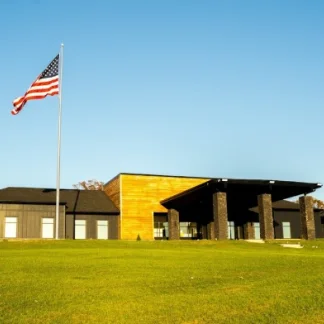Spring Meadow Center
Spring Meadow Center is a private rehab located in Mount Washington, Kentucky. S...
The Robert Alexander Center for Recovery (RAC) is a CARF-accredited drug and alcohol rehab in Mount Washington, KY. The luxury rehab facility is dedicated to helping those who struggle with substance abuse and co-occurring mental illness.
The Robert Alexander Center for Recovery provides a full continuum of care including:
Initiating the recovery journey, the center provides medically supervised detoxification. The process is closely monitored by medical professionals who are equipped to address withdrawal symptoms.
For individuals necessitating a focused, immersive healing experience, the center offers residential treatment. This entails a structured living environment, intensive therapeutic sessions, group interactions, and recreational activities.
Acting as a bridge between inpatient treatment, the partial hospitalization program (PHP) offers robust therapeutic treatment while allowing individuals to return home. PHP treatment requires a commitment of 4-6 hours a day for 3-5 days a week. It combines medical management with a range of evidence-based therapies.
The intensive outpatient program (IOP) provides a flexible yet comprehensive treatment trajectory for individuals who’ve either transitioned from more intensive care levels or need structured therapy without daily residential commitment.
The center comprehends the ripple effect of addiction on family dynamics. Hence, it incorporates family therapy, aiming to mend strained relationships, educate loved ones, and create a supportive home environment.
RAC’s aftercare planning ensures individuals are well-equipped with resources, coping mechanisms, and continuous access to support, solidifying the foundation of sustained sobriety.
Contact us for more information: (502) 443-9950

Connect with Robert Alexander Center for Recovery by calling their admissions team directly.
(502) 443-9950 Website Get DirectionsThe Joint Commission, formerly known as JCAHO, is a nonprofit organization that accredits rehab organizations and programs. Founded in 1951, the Joint Commision's mission is to improve the quality of patient care and demonstrating the quality of patient care.
Joint Commission Accreditation: Yes
LegitScript has reviewed Robert Alexander Center for Recovery as part of their certification program, and has determined that it meets the LegitScript standards for legality, safety and transparency.
LegitScript verified in December 2020
Research clearly demonstrates that recovery is far more successful and sustainable when loved ones like family members participate in rehab and substance abuse treatment. Genetic factors may be at play when it comes to drug and alcohol addiction, as well as mental health issues. Family dynamics often play a critical role in addiction triggers, and if properly educated, family members can be a strong source of support when it comes to rehabilitation.
Group therapy is any therapeutic work that happens in a group (not one-on-one). There are a number of different group therapy modalities, including support groups, experiential therapy, psycho-education, and more. Group therapy involves treatment as well as processing interaction between group members.
In individual therapy, a patient meets one-on-one with a trained psychologist or counselor. Therapy is a pivotal part of effective substance abuse treatment, as it often covers root causes of addiction, including challenges faced by the patient in their social, family, and work/school life.
Group therapy is any therapeutic work that happens in a group (not one-on-one). There are a number of different group therapy modalities, including support groups, experiential therapy, psycho-education, and more. Group therapy involves treatment as well as processing interaction between group members.
In individual therapy, a patient meets one-on-one with a trained psychologist or counselor. Therapy is a pivotal part of effective substance abuse treatment, as it often covers root causes of addiction, including challenges faced by the patient in their social, family, and work/school life.
In individual therapy, a patient meets one-on-one with a trained psychologist or counselor. Therapy is a pivotal part of effective substance abuse treatment, as it often covers root causes of addiction, including challenges faced by the patient in their social, family, and work/school life.
Spring Meadow Center is a private rehab located in Mount Washington, Kentucky. S...